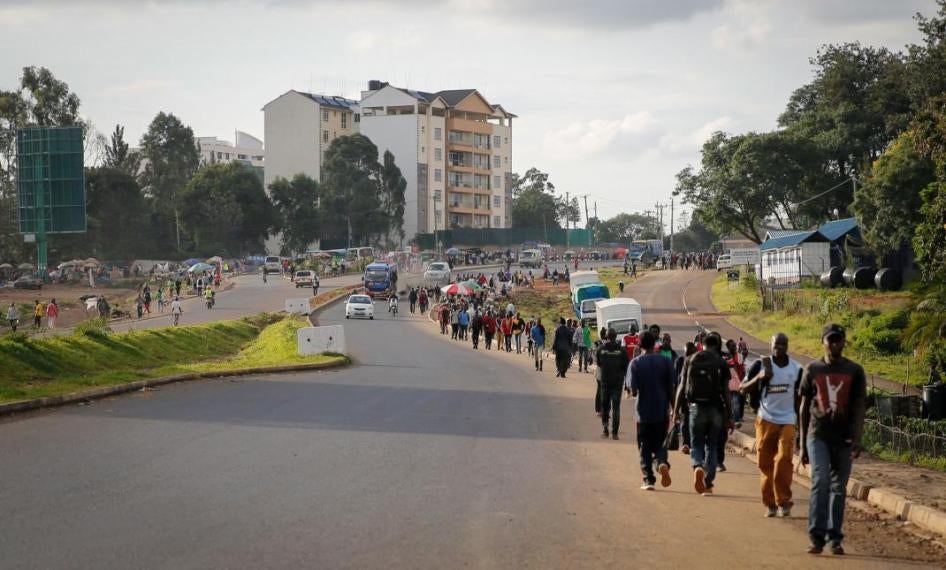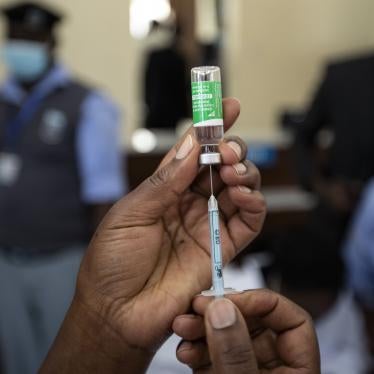In early June, Kenya’s Ministry of Health released guidelines on how people with mild or asymptomatic cases of Covid-19 could self-isolate at home. The new guidelines were drafted in accordance with the World Health Organization’s recommendations.
Previously, Kenya’s authorities forcibly quarantined tens of thousands of people in facilities that lacked proper sanitation, were crowded and confined, and did not provide people with personal protective equipment like face masks. These conditions increased the risk of Covid-19 transmission, rather than protecting those who were in quarantine.
The launch of the new countrywide protocol around self-isolating came on the heels of a May 28th report by Human Rights Watch, in collaboration with Kenya Human Rights Commission and Journalists for Justice. The report detailed how quarantine in a government facility was forced upon Kenyans who had displayed Covid-19-like symptoms, travelers or those that had encountered travelers, and those who broke curfew or did not wear a face mask in public. In one instance, a mother was forced to quarantine along with her month-old child for breaking curfew by ten minutes.
Conditions in the government quarantine facilities were often dire. People reported limited access to food and water, personal protective equipment, proper ventilation, appropriate bedding, and cleaning supplies. People also spoke of physically and emotionally abusive practices in the facilities, such as blocking people who could not afford to pay for their involuntary accommodation from leaving the facilities, and in one instance even calling the police to beat them.
The new guidelines outline home-based isolation care for infected persons with mild symptoms and have been received well across the country. However, enforcement has been largely on a case-by-case basis and exact details on implementation are not available. As the Covid-19 pandemic continues to pose a risk to Kenyans, authorities should ensure that law enforcement does not abuse the policy by imposing it in a discriminatory or arbitrary manner and that patients’ rights are respected. Human Rights Watch will continue to monitor the impact of Covid-19 in Kenya and press government officials to maintain policies that curb the virus, keep the public safe, and respect human rights.








